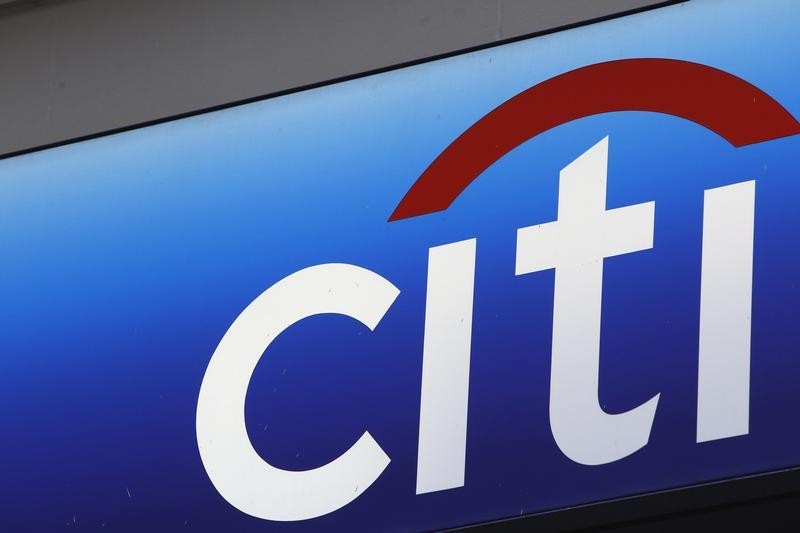This post was originally published on this site
https://i-invdn-com.investing.com/trkd-images/LYNXMPEI9D0FC_L.jpg
NEW YORK (Reuters) – U.S. stocks dropped on Friday as worsening inflation expectations kept intact worries that the Federal Reserve’s aggressive rate hike path could trigger a recession, while investors digested the early stages of earnings season.
In the last session of a volatile week, equities opened higher, then reversed course after data from the University of Michigan showed consumer sentiment improved in October but inflation expectations worsened as gasoline prices moved higher. Retail sales data also indicated resilience among consumers.
“The main thrust for the market right now is higher interest rates, higher inflation and the Fed is going to continue to move its fed funds target higher,” said Anthony Saglimbene, chief market strategist at Ameriprise Financial (NYSE:AMP) in Troy, Michigan.
“The narrative that we’ve seen peak inflation is not evident yet and that’s depressing the market.”
On Thursday, a reading on consumer prices (CPI) showed inflation remained stubbornly high.
Fed officials have been largely in sync when commenting on the need to raise rates and St. Louis Fed President James Bullard said in a Reuters interview the recent CPI data warrants a continued “frontloading” through larger three-quarter-percentage point steps, although that does not necessarily mean rates need to be raised above the central bank’s most recent projections.
The Dow Jones Industrial Average fell 403.89 points, or 1.34%, to 29,634.83, the S&P 500 lost 86.84 points, or 2.37%, to 3,583.07 and the Nasdaq Composite dropped 327.76 points, or 3.08%, to 10,321.39.
Friday’s decline marked the 37th time the S&P 500 recorded a gain or loss of at least 2% compared with only seven such session in all of 2021. For the week, the Dow gained 1.15%, the S&P 500 lost 1.56% and the Nasdaq fell 3.11%.
Corporate earnings season started to pick up steam and helped the bank index, which posted a narrow 0.03% gain after quarterly results from JPMorgan Chase & Co (NYSE:JPM), up 1.66%, Citigroup Inc (NYSE:C), up 0.65%, and Wells Fargo (NYSE:WFC) & Co, up 1.86%, boosted the shares of each.
“The message I got from them is things are looking pretty good from an economic perspective despite the challenges but they increased loan-loss reserves just in anticipation that you are going to see some more slowing,” said Brian Jacobsen, senior investment strategist at Allspring Global Investments in Menomonee Falls, Wisconsin.
UnitedHealth (NYSE:UNH) gained 0.63% as one of only three Dow components to move higher on the day after the health insurer posted better-than-expected quarterly results while raising its annual forecast.
Analysts now expect third-quarter profits for S&P 500 companies to have risen just 3.6% from a year ago, much lower than an 11.1% increase expected at the start of July, according to Refinitiv data.
Kroger (NYSE:KR) Co shares dropped 7.32% after the supermarket chain said it would buy smaller rival Albertsons Companies Inc in a $24.6 billion deal.
Tesla (NASDAQ:TSLA) Inc slumped 7.55% following media reports that the electric vehicle maker has put on hold plans to launch battery cell production at its plant outside Berlin due to technical issues.
Volume on U.S. exchanges was 10.88 billion shares, compared with the 11.48 billion average for the full session over the last 20 trading days.
Declining issues outnumbered advancing ones on the NYSE by a 4.20-to-1 ratio; on Nasdaq, a 2.87-to-1 ratio favored decliners.
The S&P 500 posted 5 new 52-week highs and 7 new lows; the Nasdaq Composite recorded 71 new highs and 235 new lows.

